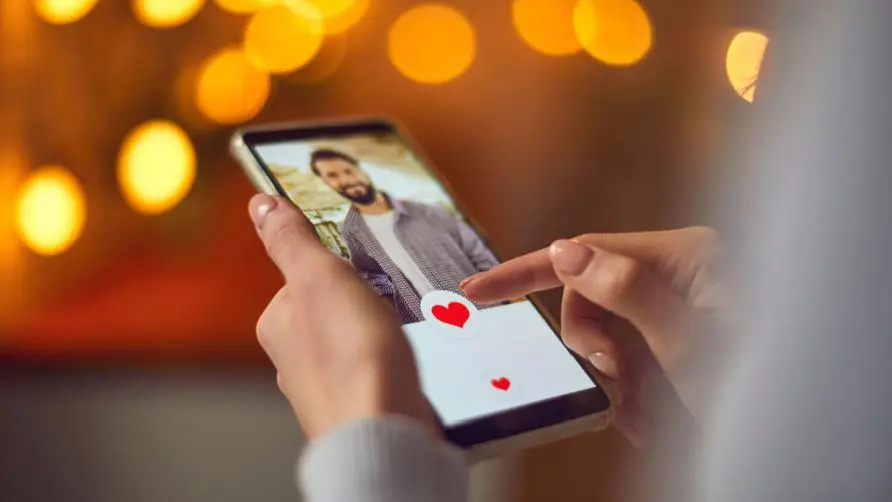Is swiping on a dating app like playing a single-player game? Research: Possessing "4 major traits" can increase the chance of being swiped right

As social trends open up, “online dating” has gradually become the mainstream way to meet romantic partners, and dating software in particular is the first choice for many young men and women. Many people are curious about how to present themselves on dating apps so as to attract the attention of others? Research in “Personality and Individual Differences” points out that people who like to meet romantic partners through dating apps are usually more willing to see their partners display four types of personalities.
How to use dating software to become popular? Research reveals: People with these “4 traits” are more attractive!
A research team from the University of Stirling in the UK recruited 383 subjects (178 men and 205 men respectively). They were asked to evaluate 100 different dating profiles on dating apps and asked whether they would be willing to use the dating apps in that profile. or pair. In addition, the subjects also rated the personality traits in their resumes based on the “Big Five personality traits” scale.
The so-called five types of personality refer to an individual’s openness (creative/curious or consistent/cautious), conscientiousness (efficient/organized or extravagant/careless), extroversion (outgoing/energetic or lonely/introverted), and agreeableness. (friendly/compassionate or critical/rational) and neuroticism (sensitive/nervous or resilient/confident). The subject’s own personality traits do not significantly affect the number of matches, but when it comes to the user’s personality, it will have a significant impact.
The results showed that the subjects showed a preference for the classification of “agreeableness”, “openness”, “neuroticism” and “extraversion”:
“High agreeableness” represents trust, generosity and helpfulness. Compared with more rational dating app users who like to criticize others, people who are empathetic are more popular. Research emphasizes that cooperative relationships are an important factor in human evolution, and those who have a cooperative attitude towards others are considered to be better suited for survival.
“High openness” is related to creativity and curiosity. It is an important factor that drives oneself and others to get to know each other and bring the relationship closer. Research has found that most dating software users have a relatively open attitude towards relationships, while users who are too cautious or rigid will be defined as boring and unapproachable.
“Less neurotic” subjects mean that their emotions are relatively stable and they show a more tolerant attitude towards their dating partners. On the contrary, showing sensitive or nervous emotions can easily send “unstable” signals to the other party, leading to an increased risk of date failure.
Subjects with “low extroversion”, that is, introverts, seem to be more popular than extroverts. The research team explained that the experiment was conducted during the COVID-19 pandemic, and many subjects believed that the adventurous spirit of extroverts may lead to an increased risk of infection. Additionally, dating apps may be primarily used for short-term relationships (such as one-night stands), but when considering long-term relationships, extroversion classification becomes less important.
The study further analyzed the “conscientiousness” index and found that it has nothing to do with popularity on dating software. The possible reason is that dating software pursues short-term relationship strategies, and a high degree of conscientiousness may be more beneficial to long-term relationships. To sum up, the research shows that dating partners with high agreeableness and openness, emotional stability and introversion may be more popular on dating apps.
Finding your partner is not just about looking at the “three views”! The closer the 24 conditions are, the happier they are together
Another study also published in “Personality and Individual Differences” pointed out that whether you are dating online or in real life, the closer the “24 conditions” are to your date, the higher your chance of becoming a romantic partner and your happiness in the future. Feelings will also improve.
The 24 conditions are: lifestyle, outlook, emotional state, birth background, sociality, romantic personality, moral values, family situation, eating habits, perceptual ability, social class, religious beliefs, herd behavior, leisure hobbies, appearance, Work style, conflict resolution, empathy, sense of humor, location, conversation skills, intelligence, enthusiasm, and activity participation.
The research points out that the factors that most resonate with both parties are sociality, morality, conformity, lifestyle and place of residence. When choosing a long-term partner, subjects rated lifestyle, outlook, romantic personality, morals, family situation, eating habits, beliefs, sociality, leisure hobbies, residence, and passion as more important, while for short-term relationships, subjects ranked the most important. What matters is appearance and intelligence.
By gender, men are more concerned about similarities in emotional states and activities, while women are more concerned about similarities in lifestyle, opinions, morals, conformity, appearance, and empathy. Research suggests this is because women have traditionally invested more in raising children and are therefore more selective in their choice of partners, and are less concerned with factors such as education, faith or intelligence.
Source:
Further reading:





